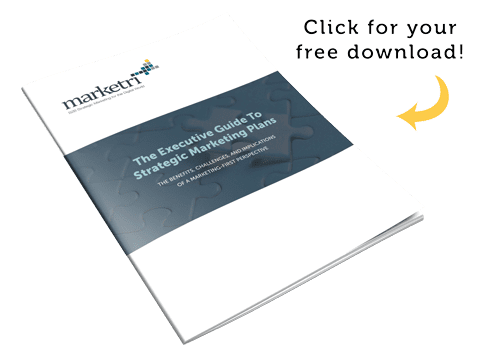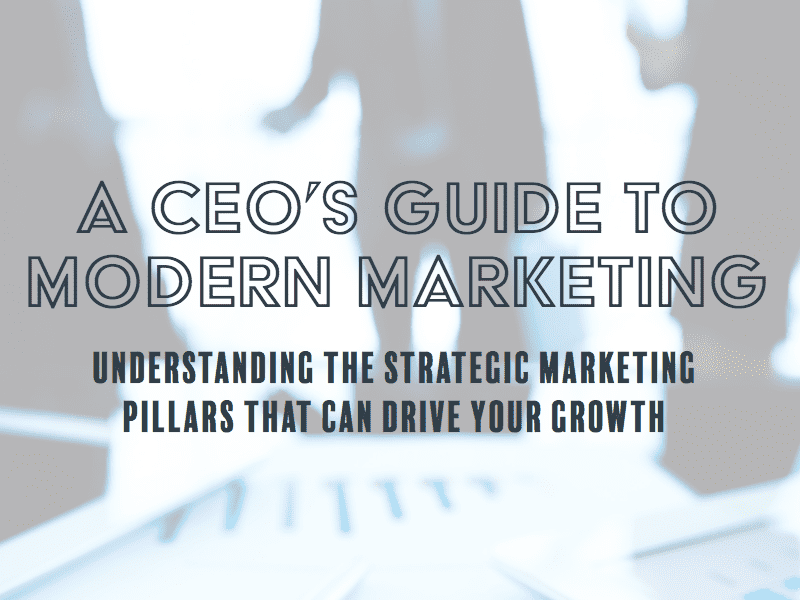B2B and B2C Marketing Are Converging. Are You Prepared?
For decades, B2B and B2C marketing efforts have, for a large part, been vastly different in their approaches. Everything from the strategies to reach these audiences to the closing of sales has been approached with very different lenses. Today, these efforts have changed largely due to the emergence of social media and the expansion of the internet, which has drastically altered the way information is received. As a result, this has influenced the expectations of businesses and consumers alike.

Understanding the Differences Between B2B and B2C
Let’s start by identifying the historical differences between B2B and B2C. Business-to-business marketing has historically been set apart from business-to-consumer marketing for five reasons:
1. A Longer Decision-Making Process
Get ready for a long process. When a purchase is made by a business, it usually requires a large financial investment, and as a result, decisions are not made lightly. Instead, it could take a business anywhere from months to years to purchase.
2. Greater Number of Involved Stakeholders
Generally, when selling B2B products and services, multiple members of the business are involved in the decision making. While a sales pitch may be to one individual or to a team, businesses will typically consult other executives before ultimately deciding to make the investment.
3. A Lengthier Relationship
Given how long the process to purchase can take, businesses on the purchasing side will look to develop long-term relationships with businesses on the selling side. Executives are busy, so if the effort is made to build a relationship, those executives will want to continue the relationship to avoid having to repeat the decision-making process.
4. A Smaller Lead Pool
When marketing to businesses, there are only so many prospective customers available, and they have all likely been identified. The challenge there is finding the specific subset of the broader pool that you and your services can support best.
5. A Different Type of Product Knowledge
In-depth product knowledge is needed before a business will purchase. Executives will expect to be educated on a product until they have a thorough understanding of the pros, cons, and similar competitive products. This depth of understanding often varies from the level of product knowledge needed by a consumer, who tends to be more focused on product functionality and the immediate need the product satisfies.

Business-to-consumer marketing, on the other hand, has historically been driven by these factors:
1. A Shorter Decision-Making Process
Purchasing decisions by consumers are typically made quickly. For example, you may have purchased an item you found online shortly after seeing an advertisement for it.
2. A Smaller Number of Stakeholders
When making day-to-day purchases as a consumer, you dig into your own wallet to spend money on the product you want. This is unlike B2B purchases, where a company—and its internal stakeholders—are working through the best ways to spend a shared budget.
3. A Shorter Relationship
Consumers typically make quick decisions with little effort or consideration and, as a result, may not develop a strong sense of loyalty to a specific business or brand. This means the relationship with a business can end almost as impulsively as it began.
So, How Have B2B and B2C Markets Converged?
Spoiler Alert: B2B and B2C marketing have a lot more in common than you may think.
Personalization is key. Both businesses and consumers have set the bar high when it comes to the buying experience.
Today, as customers are becoming loyal to businesses and brands they purchase from and feel a connection with, the B2C buying experience is beginning to look more like that of the B2B experience. These days, consumers know a business before the business knows them. Access to information through today’s digital landscape is so readily available that, for example, a decision to purchase a pair of sneakers would happen as easily as seeing an ad on social media and ordering a pair online in the same day.
Now, the decision to purchase likely involves online research to read reviews, learn about the brand, and check out what celebrities or influencers are loyal to or are promoting that brand. Because consumers want to feel a personal connection to businesses they purchase from, they also now feel a sense of brand loyalty when purchasing from a business whose values align with their own. As a result, they are more likely to continue to purchase from that business.
Just as the B2C buying experience has changed, so has the B2B experience. While many of the traditional factors discussed above remain true, one of the biggest evolutions is that businesses want to be treated like high-end consumers. And it makes sense: behind every business is a person or group of people making day-to-day purchases in their own lives. As mentioned above, an in-depth level of product knowledge is needed in B2B purchases, and a business will need a stronger level of confidence to believe in your product. Focused B2B marketing strategies will focus on highlighting and differentiating value in a way that truly resonates with the company’s ideal buyer. Depending on the product or service, that buyer might be able to make a decision, or may need support in championing it internally among other stakeholders—each of whom might need an adjusted message.
Ultimately, a personalized experience is what both B2C and B2B customers are looking for, so it’s important to align your marketing strategy to your strengths and your customers’ needs.
Ready to Start?
For more information on developing a strong strategic marketing plan for your consumers, download our guide by clicking the image below:






